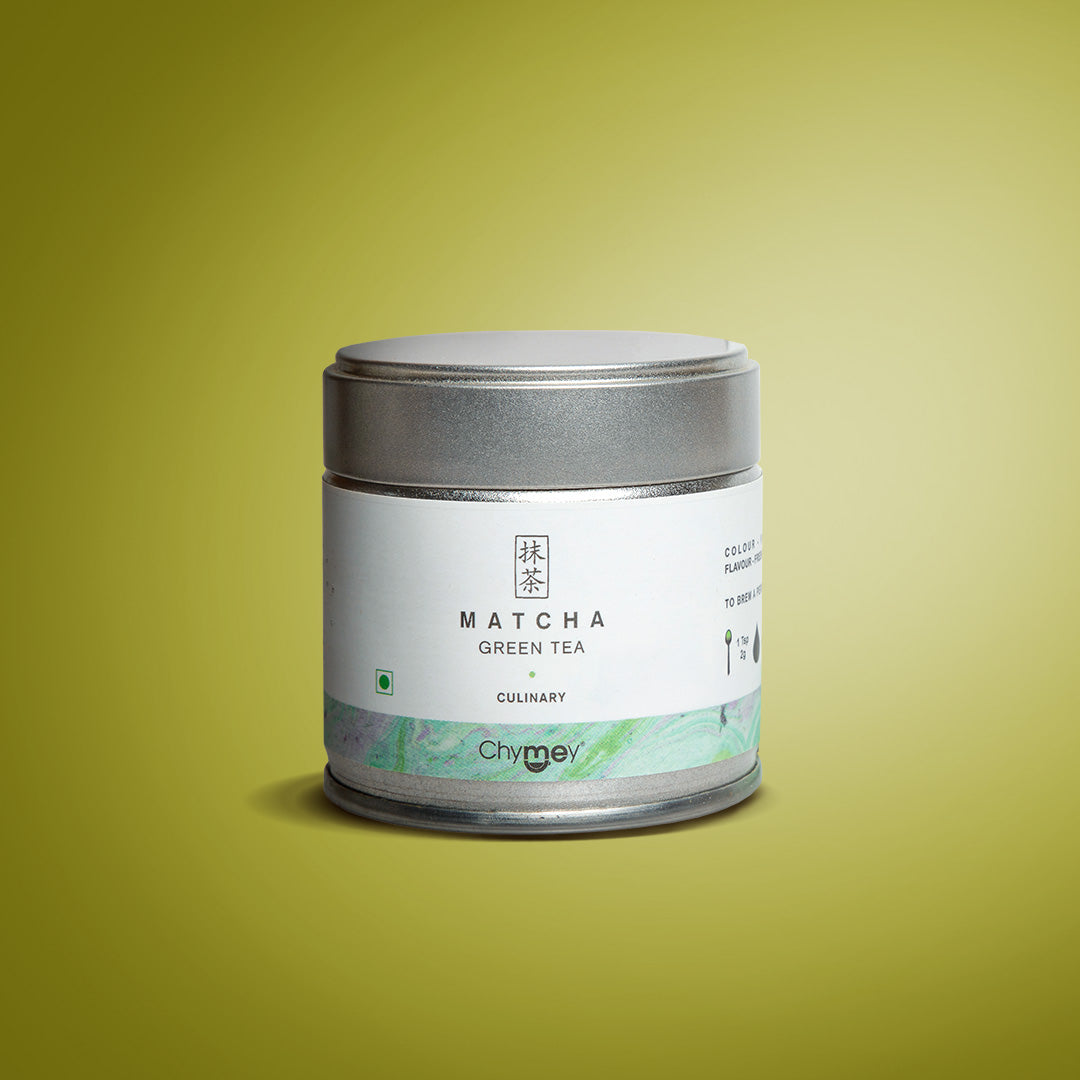Polycystic Ovary Syndrome (PCOS) is a prevalent hormonal disorder affecting women worldwide, characterised by irregular menstrual cycles, elevated androgen levels, and ovarian cysts. It affects approximately 1 in 10 women, impacting fertility and posing various metabolic challenges. As interest in natural remedies and lifestyle adjustments grows to manage PCOS symptoms effectively, many women are exploring alternative approaches alongside conventional treatments.
One such avenue gaining attention is the incorporation of matcha green tea into dietary routines. Matcha, a finely ground powder of specially grown and processed green tea leaves, is renowned for its rich antioxidant content and potential health benefits. This blog examines the emerging research on matcha green tea's role in supporting hormonal balance and alleviating symptoms associated with PCOS.
Role of Diet in Managing PCOS
Diet plays a crucial role in managing Polycystic Ovary Syndrome (PCOS), offering women a way to alleviate symptoms and support overall health. The right dietary choices can positively influence hormonal balance, insulin sensitivity, and weight management, all pivotal in PCOS management. Research indicates that focusing on whole foods, rich in nutrients and low in refined sugars and carbohydrates, can significantly impact PCOS symptoms. Incorporating matcha green tea into a balanced diet may provide additional benefits due to its antioxidant content and effects on insulin sensitivity and hormonal regulation.
Understanding how to improve PCOS through dietary adjustments, including integrating matcha green tea, empowers women to manage their condition effectively. Matcha green tea is notable for its antioxidant properties and potential benefits in managing PCOS. By exploring these dietary strategies, women can take proactive steps towards better managing their symptoms and supporting their overall well-being.
Potential Benefits of Matcha for PCOS
Matcha green tea, originating from traditional Japanese tea culture, has gained widespread recognition for its unique characteristics and potential health benefits. Unlike standard green teas, matcha is finely ground from shade-grown tea leaves, retaining a vibrant green colour and concentrated nutrients. Its preparation involves whisking the powder with hot water, ensuring a beverage rich in flavour and antioxidants.
In recent years, matcha has surged in popularity as a health beverage due to its notable antioxidant properties. Antioxidants such as catechins, particularly epigallocatechin gallate (EGCG), are abundant in matcha, contributing to its potential health-promoting effects. This includes supporting cardiovascular health, boosting metabolism, and potentially aiding in conditions like PCOS. The concept of using matcha for PCOS has emerged from research suggesting its role in improving insulin sensitivity and potentially balancing hormones, which are critical factors in managing PCOS symptoms.
Matcha's versatility extends beyond its traditional use as a ceremonial tea; it is now integrated into various culinary and wellness practices worldwide. Its growing appeal lies not only in its flavour and cultural heritage but also in its potential contributions to holistic health approaches.
Mechanisms of Action
The antioxidants in matcha, particularly epigallocatechin gallate (EGCG), help combat oxidative stress and inflammation, which are linked to hormonal imbalances and insulin resistance in PCOS. Research suggests that Matcha green tea for PCOS may improve insulin sensitivity, aiding in better regulation of blood sugar levels. Additionally, compounds in matcha green tea have shown promise in influencing hormone levels, potentially through interactions with hormone receptors or modulation of hormone production pathways.
These mechanisms highlight matcha green tea as a valuable addition to dietary strategies aimed at managing PCOS symptoms. In the next section, we explore practical tips for incorporating matcha green tea into a balanced diet to optimise its potential benefits.
Practical Tips and Recommendations
Incorporating matcha green tea into a PCOS-friendly diet can be a beneficial addition for women looking to manage their symptoms effectively. Here are some practical tips and considerations to maximise its potential benefits:
- Integration into Daily Routine: Start by replacing other caffeinated beverages with matcha green tea to gradually incorporate it into your daily routine. Consider enjoying it as a morning beverage or as a mid-afternoon pick-me-up.
- Quality and Preparation: Opt for high-quality matcha powder from reputable sources to ensure maximum antioxidant content. Traditional preparation involves whisking the powder with hot (but not boiling) water until frothy, preserving its nutritional integrity.
- Caffeine Content: While matcha green tea contains caffeine, it is lower compared to coffee. However, sensitivity to caffeine varies among individuals. Monitor your intake and consider choosing ceremonial grade matcha, which tends to have lower caffeine levels than culinary grade.
- Balanced Approach: Incorporate matcha green tea as part of a balanced diet rich in whole foods, vegetables, lean proteins, and healthy fats. Avoid excessive sugars and refined carbohydrates, which can impact insulin levels.
- Variety in Consumption: Explore different ways to enjoy matcha green tea, such as in smoothies, lattes, or even incorporated into recipes for baked goods or desserts. This versatility can make it easier to incorporate into your diet regularly.
- Consultation with Healthcare Provider: As with any dietary change, especially if managing a medical condition like PCOS, it's essential to consult with a healthcare provider or a registered dietitian. They can provide personalised advice based on your specific health needs and goals.
Conclusion
To sum up, research highlights matcha’s antioxidant-rich nature, which helps combat oxidative stress linked to hormonal imbalances. Matcha also shows promise in improving insulin sensitivity, crucial for managing PCOS-related metabolic issues. Additionally, its influence on hormonal regulation suggests it could offer holistic support in managing symptoms associated with PCOS.
At Chymey, we're committed to providing you with the finest Japanese Matcha Tea. Our Matcha is sourced directly from Japan, shade-grown for optimal flavour and nutrition, and meticulously stone-ground for a smooth texture. Discover more about our Matcha Tea offerings and start your journey towards better health today.















Leave a comment (all fields required)